How to Sleep Better
When we don’t get enough sleep, our brains won’t work as they should. It’s important to rest properly so that we can wake up refreshed and alert. With that in mind, 5-Minute Crafts has a few suggestions that might help you with this.
1. Breathe with your abdomen.
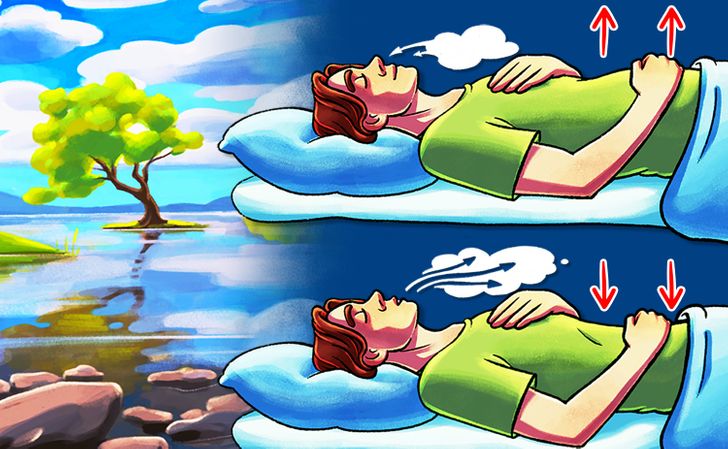
- First, lie down with your legs straight out and slightly apart.
- Then point your toes outward, place your arms at your sides, and close your eyes.
- Have one hand on your stomach, and another on your chest.
- Pay attention to which of the hands rises the most when you inhale.
- If it’s the one on your chest, focus on filling your stomach with air before you reach its top (force your abdomen to rise as you breathe).
- Exhale through your mouth, and inhale again through your nose.
- Continue breathing this way for 5 to 10 minutes.
Note: Practice this breathing technique at least once a day. It slows down the things in your body that keep you anxious and tense, as well as your heart rate, making it easier for you to fall asleep.
2. Don’t take naps.
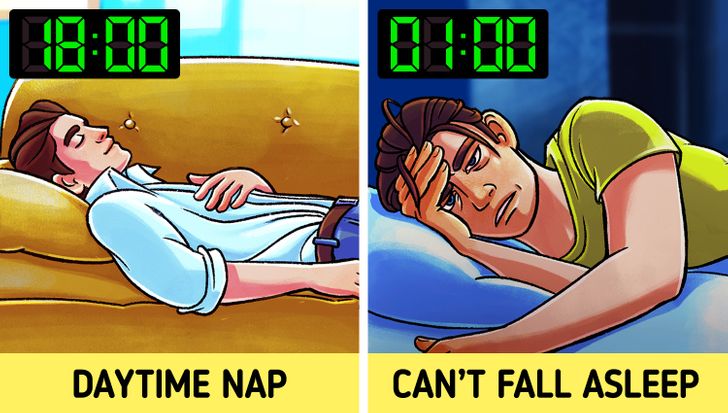
Even though you might feel better and more alert after taking a nap during the day, it might affect your sleep at night. A study has shown that among 440 people, the ones with the worst sleep during the night were those who napped for more than 2 hours during the day and those that napped at later hours (between 6 p.m. and 9 p.m.).
This was the case in a 1996 study too, specifically focused on older adults. So try to not nap at all or simply take a really short nap for about 30 minutes or less during the early hours of the day. If you feel like you sleep better at night after doing this, it’s time to cut out naps.
3. Do progressive muscle relaxation.
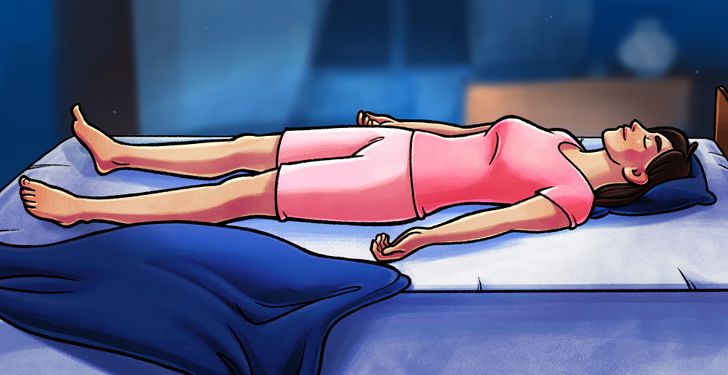
- First, raise your eyebrows. Slowly relax to let the tension out of your forehead.
- Then shut your eyes tightly and relax while you slowly open them.
- Move on to your lips and cheeks by tensing them as you grimace your jaw (a face of disgust). Relax all of these muscles at once.
- For your shoulders, bring them to your ears and tense your muscles. Relax them slowly.
- Flex your biceps, and afterward, loosen them to release the tension.
- Now tense your forearms and slowly ease them up after.
- Tense the muscles of your chest and abdomen by taking a deep breath. Slowly exhale while you relax them.
- Arch your back on your bed or floor (as you prefer), and slowly relax the muscles to release both stress and tension.
- Tighten your hips and buttocks, and then slowly relax them.
- Squeeze your legs together, and again, slowly relax.
- Finally, flex your feet for a few seconds, relax them.
- To finish up, curl your toes and slowly loosen them back to neutral.
Note: Doing this can make you physically relaxed and also calm your brain. However, you might need to practice it 1 or 2 times a day for a week before you can get good at it.
4. Count and breathe.
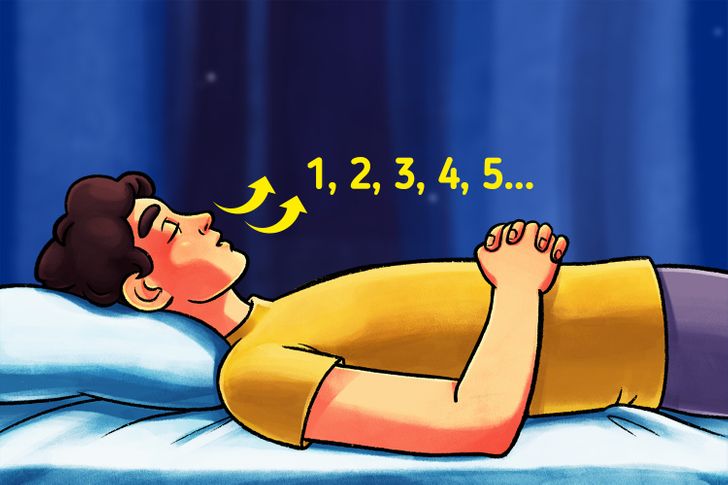
- Lie down in your bed and focus on exhaling.
- Feel the support of the bed underneath you as you do this.
- Then count from 1 to 10.
- When you’re done, count backward from 10 to 1.
- Pair up the exhales with your counting.
- Repeat this until you fall asleep.
Note: You can also count backward from 99 to 1 or any other way that works best for you.
5. Meditate.
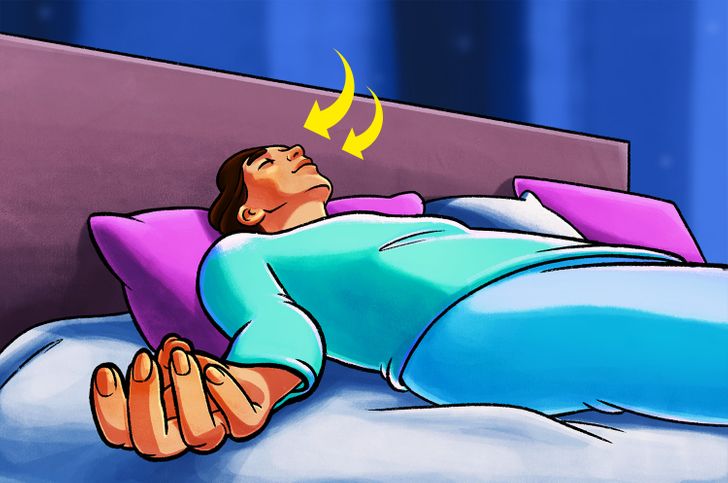
- First, focus on inhaling slowly and exhaling at a pace that’s comfortable for you.
- Pay attention to the position of your body on your bed and to the sensations of your legs and feet (good or bad).
- Try to let your legs be soft.
- Now pay attention to the rest of your body, from your legs up to your head, so that you can stay present while observing your body’s sensations. The goal is to do this without judging or reacting to it and then letting each part of your body relax.
- Now that you’ve scanned your entire body, think of it as a whole and simply try to let it relax.
Note: Meditating can help you sleep better as it provides you with steady breathing as well as a focus on the present moment, free of judgment. It may reduce anxiety and insomnia too. Dedicate at least 5 minutes a day to practicing meditation and it’ll start working better.